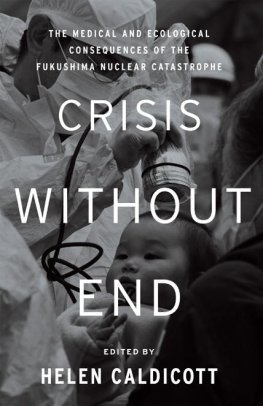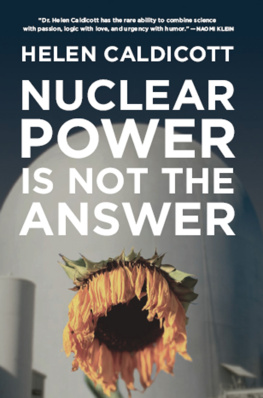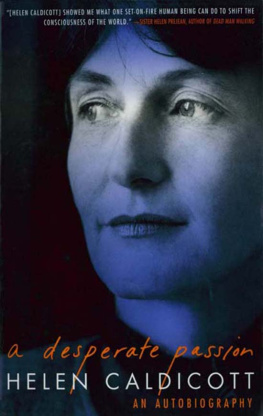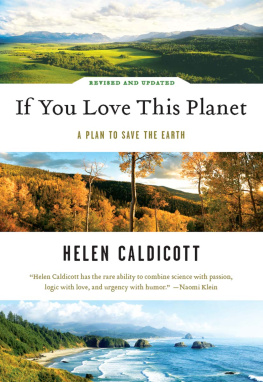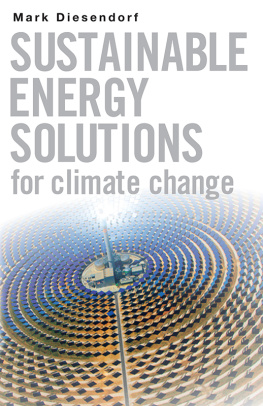LOVING THIS PLANET
ALSO BY HELEN CALDICOTT
FROM THE NEW PRESS
Nuclear Power Is Not the Answer
The New Nuclear Danger: George W. Bushs
Military-Industrial Complex
War in Heaven: The Arms Race in Outer Space
(with Craig Eisendrath)
LOVING THIS
PLANET
Leading Thinkers Talk About How to
Make a Better World
Helen Caldicott

I dedicate this book to my two radio producers: Scott Powell, whose persistence, perseverance, and dedication over the years assured the creation of my radio show, and to Jasmin Williams, my loyal and clever friend whose technological knowledge allows us to record and produce the show in a tiny Australian fishing village made famous by the fisherman and author Zane Grey.
2012 by Helen Caldicott
All rights reserved.
No part of this book may be reproduced, in any form, without written permission from the publisher.
Requests for permission to reproduce selections from this book should be mailed to: Permissions Department, The New Press, 38 Greene Street, New York, NY 10013.
Published in the United States by The New Press, New York, 2012
Distributed by Perseus Distribution
LIBRARY OF CONGRESS CATALOGING-IN-PUBLICATION DATA
Caldicott, Helen.
Loving this planet : leading thinkers talk about how to make a better world / Helen Caldicott.
p. cm.
ISBN 978-1-59558-808-1
1. Environmentalism--Philosophy. 2. Environmental responsibility. 3. Environmental protection. I. Title.
GE195.C35 2012
304.2--dc23
2012004565
Now in its twentieth year, The New Press publishes books that promote and enrich public discussion and understanding of the issues vital to our democracy and to a more equitable world. These books are made possible by the enthusiasm of our readers; the support of a committed group of donors, large and small; the collaboration of our many partners in the independent media and the not-for-profit sector; booksellers, who often hand-sell New Press books; librarians; and above all by our authors.
www.thenewpress.com
Composition by Bookbright Media
This book was set in Garamond Premiere Pro
10 9 8 7 6 5 4 3 2 1
CONTENTS
From an early age I discovered the tremendous importance of disseminating knowledge and information. As a young girl in Australia, with the Good Samaritan as a guide, I decided that I wanted to be a doctor so that I could help people. At the age of seventeen, a cloud developed on my horizon. Just as I was about to enter medical school, I read a novel by Nevil Shute called On The Beach, which described a nuclear war that killed everyone in the northern hemisphere. Eventually the radioactive cloud engulfed Melbourne, where I lived, signaling the end of human existence. That image branded my soul and remained with me throughout medical school, indeed throughout my life. While learning basic genetics during my first year in 1956, the United States and Russia were irradiating millions of people by testing nuclear weapons in the atmosphere. And it became obvious to me that many people would develop deleterious genetic mutations, and that they would pass inherited diseases on to their offspring.
I moved to Boston in the late 1960s, which were years of intense political turmoil. The civil rights and antiVietnam War movements were flourishing; Martin Luther King Jr. and Bobby Kennedy were assassinated; and Richard Nixon was elected president. Aside from caring for three small children, I had a part-time job at Harvard Medical School, and while not having much time to participate in any political activities, I observed a potent democracy in action.
Upon my return to Australia I discovered that the French were contaminating our land with radioactive fallout from their atmospheric tests. I decided to write a letter to the local paper describing how children could develop leukemia and cancer from these tests. Suddenly, as an informed voice, I was given access to nightly television news programs to explain to Australians how radioactive fallout could induce mutation, cancer, and genetic diseases. Within nine months of my writing that letter, 75 percent of the Australian populace rose up in indignation, prompting our prime minister, Gough Whitlam, to take France to the International Court of Justice, which forced France to move its testing underground. I had a revelation as I saw firsthand the extraordinary power of viable media to educate the public and promote democracy.
Soon after this victory I discovered that the same prime minister wanted to export uranium to be used in nuclear power plants around the world (Australia owns 40 percent of the global supply). I traveled throughout Australia, teaching the union movement about basic genetics related to the dangers of uranium mining. The mining and export of uranium was banned for five years, marking another victory achieved by education through the media.
In 1976 I joined the faculty of Harvard Medical School as a pediatrics instructor in the Cystic Fibrosis Center at the Childrens Hospital in Boston. But at the same time that I cared for children in the clinic, my deep concern about all things nuclear persisted. The policy victories back home led me to revive a moribund Physicians for Social Responsibility in 1978, and over a period of five years, we recruited 23,000 members and created 153 chapters throughout the country. I encouraged the members to make full use of the media by writing op-ed pieces, appearing on radio shows and television programs, and conducting public meetings about the medical consequences of nuclear power and nuclear war. A nation that had been tightly in the grip of Cold War logic had been transformed. By 1983, 80 percent of the population opposed the concept of nuclear war, because they understood that it would create the final epidemic of the human race.
Deeply encouraged, I began initiating similar physicians movements in many other countries throughout the world, including Canada, Australia, New Zealand, Japan, Belgium, Germany, England, Scotland, Ireland, Sweden, Norway, and Denmark. A massive global physicians movement developed, helping to fuel a changing dynamic between Reagan and Gorbachev that eventually led to the end of the Cold War. We were granted the Nobel Peace Prize in 1985 for our work.
That was then, and this is now. The problem today is that science has been applied in industry, medicine, agriculture, and in many other aspects of daily life to do terrible things to society and the planet. For instance: we live in a cocktail of over eighty thousand chemicals in common use; agricultural corporations have introduced genetically modified food that is reaping disastrous consequences in the third world; nuclear power plants spill radioactive elements over nearby populations continuously, and they sometimes erupt with atomic vengeance to irradiate millions of unsuspecting people; coal plants emit carbon dioxide at a rate that is destroying the ecosphere by global warming; and thousands of nuclear weapons stand ready to be launched with a press of a button by either Putin or Obama to create nuclear winter, inducing the end of all planetary life.
The sophistication and misapplication of science has thus left the average citizen far behind. People are vaguely aware that things are not going well despite the fact that they are constantly being reassured by corporate shills and skillfully orchestrated advertising campaignsby institutions such as Monsanto, General Electric, BP, Shell, Lockheed Martin, and Boeingthat the interests of the common man and woman are being protected.
In our world today the question then becomes, How does one educate the body politic in a time of precarious planetary ills? How do we relay life- and planet-saving information when so many people are addicted to media outlets like Fox, or similar radio and television entities, that trumpet climate change skeptics and give unfettered access to scientifically illiterate politicians? Many people, in particular the youth, turn to Facebook, Twitter, and other superficial media outlets, where it can be difficult to verify the accuracy of the information being shared. While not decrying the utility of the Internet and the remarkably efficient way that it can be used to spread ideas and obtain information, being well-informed is key to utilizing it productively.
Next page

